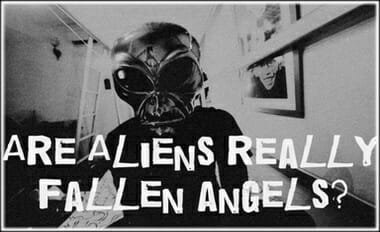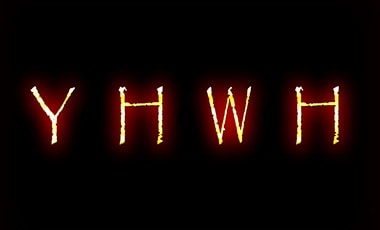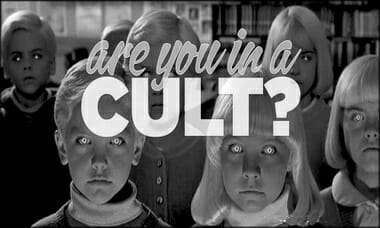WHY THE REVAMPING AND ADDITIONS TO THIS OLD POST ?
INTRODUCTION
A young co-worker and another coworking compatriot asked if I thought there was life elsewhere in the universe. Being me, I just cannot say no, so I explained the idea in conversational form (while getting stuff ready for my run) the following: “Scientific and Anecdotal Evidence for the Beginning of the Universe.”
- Albert Einstein developed his general theory of relativity in 1915;
- Around the same time evidence of an expanding universe was being presented to the American Astronomical Society by Vesto Slipher;
- In the 1920s using Einstein’s theory, a Russian mathematician (Alexander Friedman) and the Belgium astronomer (George Lemaitre) predicted the universe was expanding;
- In 1929, Hubble discovered evidence confirming earlier work on the Red-Light shift showing that galaxies are moving away from us;
- In the 1940’s, George Gamow predicted a particular temperature to the universe if the Big Bang happened;
- In 1965, two scientists (Arno Penzias and Robert Woodrow Wilson) discovered the universe’s background radiation — and it was only about 3.7 degrees above absolute zero.
After explaining quickly the ideas therein, and noting that the Greeks, Sumerians, Hindus, Buddhists, Janists, etc-etc, in fact, all the world religions and various worldviews — save theism — posit some sort of eternal nature.
BREAK: DEFINING A WORLDVIEW
For those that have never heard of something they express (often illogically and in parts)
- A worldview is a commitment, a fundamental orientation of the heart, that can be expressed as a story or in a set of presuppositions (assumptions which may be true, partially true or entirely false) which we hold (consciously or subconsciously, consistently or inconsistently) about the basic constitution of reality, and that provides the foundation on which we live and move and have our well being. — James W. Sire, Naming the Elephant: Worldview as a Concept (Downers Grove, IL: IVP, 2004), 122.
- The German word is Weltanschauung, meaning a ‘world and life view,’ or ‘a paradigm.’ It is a framework through which or by which one makes sense of the data of life. A worldview makes a world of difference in one’s view of God, origins, evil, human nature, values, and destiny” — Baker Encyclopedia of Christian Apologetics [Grand Rapids: Baker Books, 1999], 785-786.
- A worldview consists of a series of assumptions/presuppositions that a person holds about reality. A worldview, consciously or subconsciously, affects the way a person evaluates every aspect of reality. Every person adheres to some sort of worldview, although one person may not be as consciously aware of it as another person. These presuppositions affect the thinking of every person in the world. It logically follows that the way a person thinks affects what a person does. — Biblical Archaeology
- People have presuppositions, and they will live more consistently on the basis of these presuppositions than even they themselves may realize. By “presuppositions” we mean the basic way an individual looks at life, his basic worldview, the grid through which he sees the world. Presuppositions rest upon that which a person considers to be the truth of what exists. People’s presuppositions lay a grid for all they bring forth into the external world. Their presuppositions also provide the basis for their values and therefore the basis for their decisions. “As a man thinketh, so he is,” is really profound. An individual is not just the product of the forces around him. He has a mind, an inner world. Then, having thought, a person can bring forth actions into the external world and thus influence it. People are apt to look at the outer theater of action, forgetting the actor who “lives in the mind” and who therefore is the true actor in the external world. The inner thought world determines the outward action. Most people catch their presuppositions from their family and surrounding society the way a child catches measles. But people with more understanding realize that their presuppositions should be chosen after a careful consideration of what worldview is true. When all is done, when all the alternatives have been explored, “not many men are in the room” — that is, although worldviews have many variations, there are not many basic worldviews or presuppositions. — Francis A. Schaeffer, How Should We Then Live? The Rise and Decline of Western Thought and Culture (Wheaton: Crossway Books, 1976), 19-20.
(See more here: “Worldviews 101 ~ What is a Worldview?“)
END
The only religious text that posits creation ex nihilo [creation from nothing] confirming the latest discoveries of science from Einstein’s theory of relativity to now is the Hebraic Bible [specifically, Genesis — the Bible]. as part of this discussion I noted quickly the just over 10,000 religions in the world fall into just 7-categories/worldviews at most — and stressed again that only theism predicting modern scientific discovery…
QUOTE BREAK FOR MY READERS
- “For the scientist who has lived by his faith in the power of reason, the story ends like a bad dream. He has scaled the mountain of ignorance; he is about to conquer the highest peak; as he pulls himself over the final rock, he is greeted by a band of theologians who have been sitting there for centuries.”
— Robert Jastrow, God and the Astronomers (New York, NY: W.W. Norton and Company, 1992), 107 | [Additional bio info] Dr. Jastrow ( 1925–2008) became the founding director of NASA’s Goddard Institute for Space Studies and served as its director until his retirement from NASA in 1981. Concurrently he was a professor of Geophysics at Columbia University. Jastrow became the first chairman of NASA’s Lunar Exploration Committee, which established the scientific goals for the exploration of the moon during the Apollo lunar landings. In 1981 Jastrow left NASA to join the faculty of Dartmouth College as professor of Earth Sciences. He left Dartmouth in 1992 to take up duties as director and chairman of the Mount Wilson Institute, managing the Mount Wilson Observatory in California. Dr. Jastrow was an agnostic, not a Christian.
END
…and along with philosophy, history, and science [noted in the convo], I do not believe in alien life. In fact, I am informed of other lifeforms, angels.
The young lady involved in the conversation after I noted “I could have just said ‘no’ to the question” thanked me for the thorough response. Which was very kind of her. I then noted that I wish many other people in my sub-group, Christians, could also respond in similar fashion… the quote I always have in mind about this I texted to the young man while in bumper-to-bumper traffic on my way to deliver product:
TEXT
After reading many books on extraterrestrial encounters, ghosts, spirit mediums, and demons, I do believe there is interdimensional life. There is more evidence for that, and less blind faith that is required to say “life is possible somewhere” in the material universe. BTW, one of my favorite quotes (talking about faith vs informed faith):
- “I suspect that most of the individuals who have religious faith are content with blind faith. They feel no obligation to understand what they believe. They may even wish not to have their beliefs disturbed by thought. But if God in whom they believe created them with intellectual and rational powers, that imposes upon them the duty to try to understand the creed of their religion. Not to do so is to verge on superstition.”
Morimer J. Adler, [chapter titled] “A Philosopher’s Religious Faith,” in, Kelly James Clark, ed., Philosophers Who Believe: The Spiritual Journeys of 11 Leading Thinkers (Downers Grove, IL: InterVarsity Press, 1993), 207. | [Additional bio info] Dr. Adler (1902-2001) was Chairman and Cofounder with Max Weismann of the Center for the Study of The Great Ideas and Editor in Chief of its journal Philosophy is Everybody’s Business, co-founder and director of the Institute for Philosophical Research, Chairman of the Board of Editors of Encyclopedia Britannica, Editor in Chief of the Great Books of the Western World and The Syntopicon: An Index to the Great Ideas, Editor of The Great Ideas Today (all published by Encyclopedia Britannica), Co-Founder and Honorary Trustee of The Aspen Institute, past Instructor at Columbia University, Professor Emeritus at the University of Chicago (1930-52).
In other words, my worldview supported by evidence, negates such beliefs.
All this being said, I sometimes feel like the guy explaining stuff in this funny meme:
At the end of this post I will include the entire “Privileged Planet” documentary… it will expand the thinking of just how improbable another planet exists that can support life. As well as other media.
UFO POST REVAMPED
(Originally posted July of 2018)
Excellent two part video series by God and Science:
– the author of these videos id Richard Deem –
2nd Video Will Follow In A Bit….
DRAKE’S EQUATION
Here are three articles about an OXFORD study using Drake’s Equation:
Drake’s work can be expressed thus: N = R ∗ fp ∗ ne∗ fl ∗ fi ∗ fc ∗ L
- R* = How frequently are suns born whose light could conceivably sustain intelligent life?
- fp = What fraction of those stars have planets?
- ne = How many of those planets, per solar system, have environments suitable for life?
- fl = What fraction of those planets actually host life?
- fi = What fraction of those life-bearing planets have intelligent life?
- fc = What fraction of those intelligent civilizations broadcast detectable signals into space?
- L = How long do those civilizations broadcast detectable signals into space?
GREG GUTFELD CHIMES IN
3 ARTICLES
Here is the first article via Michael Guillen at FOX NEWS:
…According to a team of researchers at Oxford University’s Future of Humanity Institute, it’s because we’ve been using the wrong factors in the Drake Equation. We – including usually hard-nosed scientists – want so badly for there to be LGM, we’ve been grossly overestimating the values of Drake’s factors, resulting in a flagrant overestimation of the number of civilizations that should exist out there.
When the Oxford folks assign realistic numerical values to the seven factors – based on an honest evaluation of the uncertainties in our very best chemical, biological, physical, and astronomical knowledge – Frank’s famous equation predicts a much, much, much smaller number than 1,000 – 100,000,000 intelligent civilizations per galaxy. The median number plummets to something as low as 0.00000000000000000000000000000000008 (that’s an eight preceded by thirty-four zeroes).
In plain English, explain the authors in a paper submitted to the Proceedings of the Royal Society of London, “we find a substantial probability that we are alone in our galaxy, and perhaps even in our observable universe.” If any LGM do exist out there somewhere, the researchers conclude, it is somewhere over the rainbow, so to speak – “quite possibly beyond the cosmological horizon and forever unreachable.”
So, next time you look up at the night sky and say to yourself, “There has to be someone out there!” think again. Even though it sounds like a possibility more fantastic than the Tooth Fairy, science itself is presently telling us we are very likely it – the only intelligent creatures inhabiting this immense and incredible universe.
The other is from COSMOS:
….Sandberg, Drexler and Ord use a different approach in their modelling, incorporating current scientific uncertainties that produce values for different parts of the equation ranging over tens and hundreds of orders of magnitude. Some of these concern critical questions regarding the emergence of life from non-living material – a process known as abiogenesis – and the subsequent likelihoods of early RNA-like life evolving into more adaptive DNA-like life.
Then there is the essential matter of that primitive DNA-like life undergoing the sort of evolutionary symbiotic development that occurred on Earth, when a relationship between two different types of simple organisms resulted in the complex “eukaryotic” cells that constitute every species on the planet more complicated than bacteria.
The results are depressing enough to send a thousand science-fiction writers into catatonic shock. The Fermi Paradox, they find, dissolves.
“When we take account of realistic uncertainty, replacing point estimates by probability distributions that reflect current scientific understanding, we find no reason to be highly confident that the galaxy (or observable universe) contains other civilizations,” they conclude.
“When we update this prior in light of the Fermi observation, we find a substantial probability that we are alone in our galaxy, and perhaps even in our observable universe.
“‘Where are they?’ — probably extremely far away, and quite possibly beyond the cosmological horizon and forever unreachable.”
And the NEW YORK POST wrote on the OXFORD study as well:
…..Researchers at Oxford University’s Future of Humanity Institute came to the conclusion that humans are alone in the universe while examining the so-called “Fermi Paradox” — which ponders why scientists believe in extraterrestrials despite having zero proof.
“We find a substantial probability of there being no other intelligent life in our observable universe, and thus that there should be little surprise when we fail to detect any signs of it,” researchers say in the report, published in the online journal Arxiv.org earlier this month.
There’s likely no intelligent life outside of Earth — so there’s no need to waste time theorizing about humanity’s relationship with aliens, notes the paper, dubbed “Dissolving the Fermi Paradox.”
The paradox, named after physicist Enrico Fermi, questions how there could be “a high probability” of extraterrestrial life when there’s no solid proof.
“Where is everyone?” Fermi asked in the 1950s while pondering the possibility of interstellar travel.
Past scientific theories have said alien civilizations may be living in our galaxy based on seven factors — including the position of star formations and how long creatures are able to survive.
But Oxford researchers Anders Sandberg, Eric Drexler and Toby Ord say the simplest solution is likely the truth: There’s no one else out there……
So What Of Alien Abductions?
So, after years of reading books and studying eyewitness encounters and watching TV specials on spirit mediums, alien abductions, past lives, the occult, new age, automatic writing, altered states of consciousness, and hauntings (and more)… the messages and encounters in all these different mediums have a common thread. And since my worldview is informed by the Judeo-Christian God and Scripture… I can come to only one conclusion…. which follows:
Here is that promised 2nd video:
(This post is tied to a similar discussion of Ghost)
Please keep in mind this documentary was made in the 80’s. It has spooky music and is very much dated… the “disclaimer” below it applies as well. All that said, there are some great points made that are still relevant, and most importantly, true.
Take note I do not endorse everything noted in this documentary or the articles, but the similarity between alien encounters, spiritism (like mediums), ghosts, the occult, and the like, is the important issue here ~ NOT “government conspiracies” or the like.
While this documentary is dated, the DVD for purchase (I did edit it a bit), and HERE.
Two decent articles on the issue of UFOs and the Christian worldview, are as follows:
And the best books on the subject are by William Alnor!
- UFO’s in the New Age: Extraterrestrial Messages and the Truth of Scripture
- UFO Cults and the New Millennium
Another great book, and a quick read, is Ron Rhodes book,
A note from my Facebook about this and my other post:
I posted two older documentaries (they are from the 80’s, so expect the pat narrator and eerie music) and some links of my own thoughts on the matter.
These two posts give a theistic-Christian interpretation to UFOs, ghosts, spirit mediums, and the like. You can break the world’s 10,000 religious beliefs down to a handful of worldviews and each worldview has a distinct interpretation of the evidence. So if you are a Christian, you cannot believe a ghost is a departed love one or a soul lost and wandering the earth (Hebrews 9:27[note]).
So what is the explanation for these apparent metaphysical encounters?
Well, you will have to see and watch for yourself:
➤ Is Alien Life A Possibility? (This post)
➤ Spiritism and Ghosts ~ The Christian View
[Note] Mind you, it seems clear that before their real conversion to the idea of who Jesus was (God Almighty), the Disciple also believed in ghosts (https://carm.org/did-the-disciples-of-Jesus-believe-in-ghosts).
So I am not saying the person who does believe in these things are retarded or dumb. All I am saying is in the Christian worldview these interpretations do not fit the evidence. I would challenge the believer to mature in their understanding of what their view says and how believing in ghosts being departed people, ETs that posses people, etc,…
…are borrowing from other worldviews and cutting-n-tapping it into the worldview of Christianity.
★ Do You Believe in Ghosts? The Christian View of the Paranormal
Related Bibliography
Christian
- Testing the Spirits, by Elizebeth L. Hillstrom
- The Culting of America, by Ron Rhodes (especially chapter 12)
- Alien Obsession: What Lies Behind Abductions, Sightings, and the Attraction to the Paranormal, by Ron Rhodes
- Dictionary of Cults, Sects, Religioons and the Occult, by Mather and Nichols
- Occult Invasion: The Subtle Seduction of the World & the Church, by Dave Hunt
- Biblical Demonology: A Study of Spiritual Forces at Work Today, by Merrill F. Unger
- Encyclopedia of New Age Beliefs, by Ankerberg and Weldon
- The Facts on the New Age Movement, Ankerberg and Weldon
- Occult ABC, by Kurt Koch
- Christian Counseling & Occultism, by Kurt Koch
- Occult Bondage and Deliverance, by Kurt Koch
- Demonology, Past & Present, by Kurt Koch
- Handbook of Today’s Religions, by McDowell and Stewart
- The Occult Shock and Psychic Forces, Wilson and Weldon
- Cults: And the Occult, by Edmond Gruss
- The Ouija Board: A Doorway to the Occult, by Edmund Gruss
- Ouija: The Most Dangerous Game, by Stoker Hunt
- The Beautiful Side of Evil, by Johanna Michaelsen
- The Occult Roots of Nazism, by Nicholas Goodrick
- Witchcraft: Exploring the World of Wicca, by Craig Hawkins
- UFO’s and the Alien Agenda: Uncovering the Mystery Behind UFO’s and the Paranormal, by Bob Larson
- Encounters with UFO’s, by Weldon and Levitt
- UFOs in the New Age: Extraterrestrial Messages & the Truth of Scripture, by William Alnor
- UFO Cults & the New Millennium, by William Alnor
- Alien Encounters: The Secret Behind the UFO Phenomenon, by Missler and Eastman
- The New Age Cult, by Walter Martin
- Beware! Deception & Delusion in the Church, by Bill Rudge
Non Christian
- Communion: A True Story: Encounters with the Unknown, by Whitley Strieber
- The Unexplained, by Allen Spraggett
- Mediums, Mystics and the Occult, by Milbourne Christopher
- Ghosts Among Us: True Stories of Spirit Encounters, by Leslie Rule
- Possessed: The True Story of an Exorcism, by Thomas B. Allen
- Thirty Years Among the Dead: Historic Studies in Spiritualism; A Psychiatrist’s Investigation of Spirit Mediums and Psychic Possession in his Patients, by Carl August Wickland
- Conversations with God: An Uncommon Dialogue, Book 1, by Neale Donald Walsch
- A Course in Miracles, by Helen Schucman
- The Urantia Book: Revealing the Mysteries of God, the Universe, World History, Jesus, and Ourselves, “Multiple” authors
PRIVILEGED PLANET
Video Description
For centuries scientists and philosophers have marveled at an eerie coincidence. Mathematics, a creation of human reason, can predict the nature of the universe, a fact physicist Eugene Wigner referred to as the “unreasonable effectiveness of mathematics in the physical sciences.” In the last three decades astronomers and cosmologists have noticed another, seemingly unrelated, mystery. Contrary to all expectations, the laws of physics seem precisely “fine-tuned” for the existence of complex life.
Could these two wonders actually be isolated pieces of a wider pattern? Both are prerequisites for science, yet what about the process of scientific discovery itself? What are its necessary conditions? Why is it even possible? Read any book on the history of science, and you’ll learn about magnificent tales of human ingenuity, persistence, and dumb luck. But that’s only part of the story, and not even the most important part. Our location is much more critical to science than it is to real estate. For some reason our Earthly location is extraordinarily well suited to allow us to peer into the heavens and discover its secrets.
Elsewhere, you might learn that Earth and its local environment provide a delicate, and probably exceedingly rare, cradle for complex life. But there’s another, even more startling, fact, described in The Privileged Planet: those same rare conditions that produce a habitable planet-that allow for the existence of complex observers like ourselves-also provide the best overall place for observing. What does this mean? At the least, it turns our view of the universe inside out. The universe is not “pointless” (Steven Weinberg), Earth merely “a lonely speck in the great enveloping cosmic dark,” (Carl Sagan) and human existence “just a more-or-less farcical outcome of a chain of accidents” (Steven Weinberg). On the contrary, the evidence we can uncover from our Earthly home points to a universe that is designed for life, and designed for discovery.
PRIVILEGED LIFE
This is an old podcast of Dr. Norman Geisler discussing ex-atheist Antony Flew’s book that detailed his leaving atheism. Here is a “Flewism”
- “My whole life has been guided by the principle of Plato’s Socrates: Follow the evidence, wherever it leads.” After chewing on his scientific worldview for more than five decades, Flew concluded, “A super-intelligence is the only good explanation for the origin of life and the complexity of nature.” Previously, in his central work, The Presumption of Atheism (1976), Flew argued that the “onus of proof [of God] must lie upon the theist.” However, at the age of 81, Flew shocked the world when he renounced his atheism because “the argument for Intelligent Design is enormously stronger than it was when I first met it.” (See my DNA post: RNA/DNA = Information | Or, What “IS” Information)
Flew’s God was: immutable, immaterial, omnipotent, omniscient, whole [one, or indivisible, perfectly good and necessary exists].
I call Dr. Flew the long-time “Pope of atheism.” He was the “go-to” guy… until his move to deism in 2004. He was a British philosopher belonging to the analytic and evidentialist schools of thought, he is notable for his works on the philosophy of religion. Flew was a strong advocate of atheism, arguing that one should presuppose atheism until evidence of a God surfaces. He has also criticised the idea of life after death, the free will defense to the problem of evil, and the meaningfulness of the concept of God. However, in 2004 he stated an allegiance to deism, and later wrote the book There is a God: How the World’s Most Notorious Atheist Changed His Mind, with contributions from Roy Abraham Varghese. Dr. Flew’s God sounded a lot like the theistic God apologist Dr. William Lane Craig describes:
What properties must such a cause of the universe possess? By the very nature of the case, the cause of space and time must transcend space and time and therefore exist timelessly and nonspatially (at least without the universe). This transcendent cause must therefore be changeless and immaterial, since anything that is timeless must also be unchanging, and anything that is changeless must be nonphysical and immaterial (since material things are constantly changing at the molecular and atomic levels). Such an entity must be beginningless and uncaused, at least in the sense of lacking any prior causal conditions, since there cannot be an infinite regress of causes. Ockham’s razor—the principle which states that we should not multiply causes beyond necessity—will shave away any other causes, since only one cause is required to explain the effect. This entity must be unimaginably powerful, if not omnipotent, since it created the universe without any material cause.
Finally, and most remarkably, such a transcendent first cause is plausibly personal. Two reasons can be given for this conclusion. First, the personhood of the first cause of the universe is implied by its timelessness and immateriality. The only entities which can possess such properties are either minds or abstract objects, like numbers. But abstract objects don’t stand in causal relations. The number 7, for example, can’t cause anything. Therefore, the transcendent cause of the origin of the universe must be an unembodied mind.
Second, this same conclusion is implied by the origin of an effect with a beginning from a beginningless cause. We’ve concluded that the beginning of the universe was the effect of a first cause. By the nature of the case, that cause cannot have either a beginning of its existence or any prior cause. It just exists changelessly without beginning, and a finite time ago it brought the universe into existence. Now this is exceedingly odd. The cause is in some sense eternal and yet the effect which it produced is not eternal but began to exist a finite time ago. How can this be? If the necessary and sufficient conditions for the effect are eternal, then why isn’t the effect also eternal? How can the cause exist without the effect?
There seems to be only one way out of this dilemma, and that is to say that the cause of the universe’s beginning is a personal agent who freely chooses to create a universe in time. Philosophers call this type of causation “agent causation,” and because the agent is free, he can initiate new effects by freely bringing about conditions which were not previously present. Thus, a finite time ago a Creator endowed with free will could have freely brought the world into being at that moment. In this way, the Creator could exist changelessly and eternally but freely create the world in time. By exercising his causal power, he brings it about that a world with a beginning comes to exist? So the cause is eternal, but the effect is not. In this way, then, it is possible for the temporal universe to have come to exist from an eternal cause: through the free will of a personal Creator.
We may therefore conclude that a personal Creator of the universe exists, who is uncaused, beginningless, changeless, immaterial, timeless, spaceless and unimaginably powerful.
William Lane Craig and Chad Meister, God Is Great, God Is Good: Why Believing in God Is Reasonable and Responsible (Downers Grove, IL: IVP, 2009), 16-17.
Here is another video explaining the impossibility of life even in the time allotted by evolution (video description to follow):
This is a combining of two videos into one to strengthen the points made in them… as well as to preserve them for future use.
- FIRST VIDEO [split in two]: “Stephen Meyer Critiques Richard Dawkins’s ‘Mount Improbable’ Illustration” (YouTube)
- SECOND VIDEO [tucked between the above]: “Origin: Probability of a Single Protein Forming by Chance” (YouTube)
Other posts related to this on my site:
- Not Enough Evolutionary Time For Simple Life (RPT)
- RNA/DNA < Information | Or, What “IS” Information (RPT)
- The Two Books of Faith – Nature and Revelatory (50+ Evidences) (RPT)
ETC – ETC






























